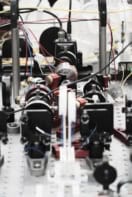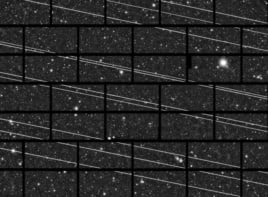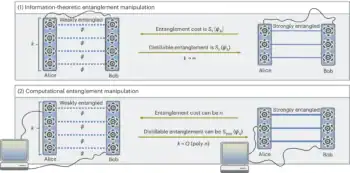Yesterday evening the space shuttle Discovery blasted off from Cape Canaveral to dock with the Mir Space Station for the last time. Apart from picking up US astronaut Andrew Thomas, the shuttle will carry the first particle physics experiment into space. The Alpha Magnetic Spectrometer (AMS) will spend ten days searching for anti-helium and anti-carbon, and measuring the energy spectra of positrons and antiprotons. The shuttle will also carry the first Internet router in space. Researchers will be able to remotely access their experiments in real time simply by using standard Internet software.
The known universe consists almost entirely of matter. However, it is thought that equal amounts of matter and antimatter were created during the big bang. One possibility is that this antimatter now forms galaxies that lie beyond those detected from Earth. The AMS will try to detect minute quantities of antimatter in cosmic rays that come from outside our galaxy. If it is successful, the results could suggest that antimatter galaxies do exist.
The AMS is also designed to search for evidence of invisible or “dark” matter. Although dark matter does not emit or absorb radiation, its presence is revealed by its gravitational interactions. Observations suggest that perhaps as much as 99% of the matter in the universe is dark. Although some dark matter is known to be made of ordinary or baryonic particles, the bulk of it is thought to be in the form of new particles beyond the Standard Model of particle physics.
The shuttle will also break another record on this trip with the world’s fastest Internet router. Unfortunately this only refers to the speed of the space shuttle – 8 km/s – not the transmission speed of the data (64 kilobits/s). The experimental package, developed by the commercial company Spacehab, gives researchers Web-like access to data collected on the Shuttle. The system will use common TCP/IP file transfer protocol with .orb, a new Internet extension.



